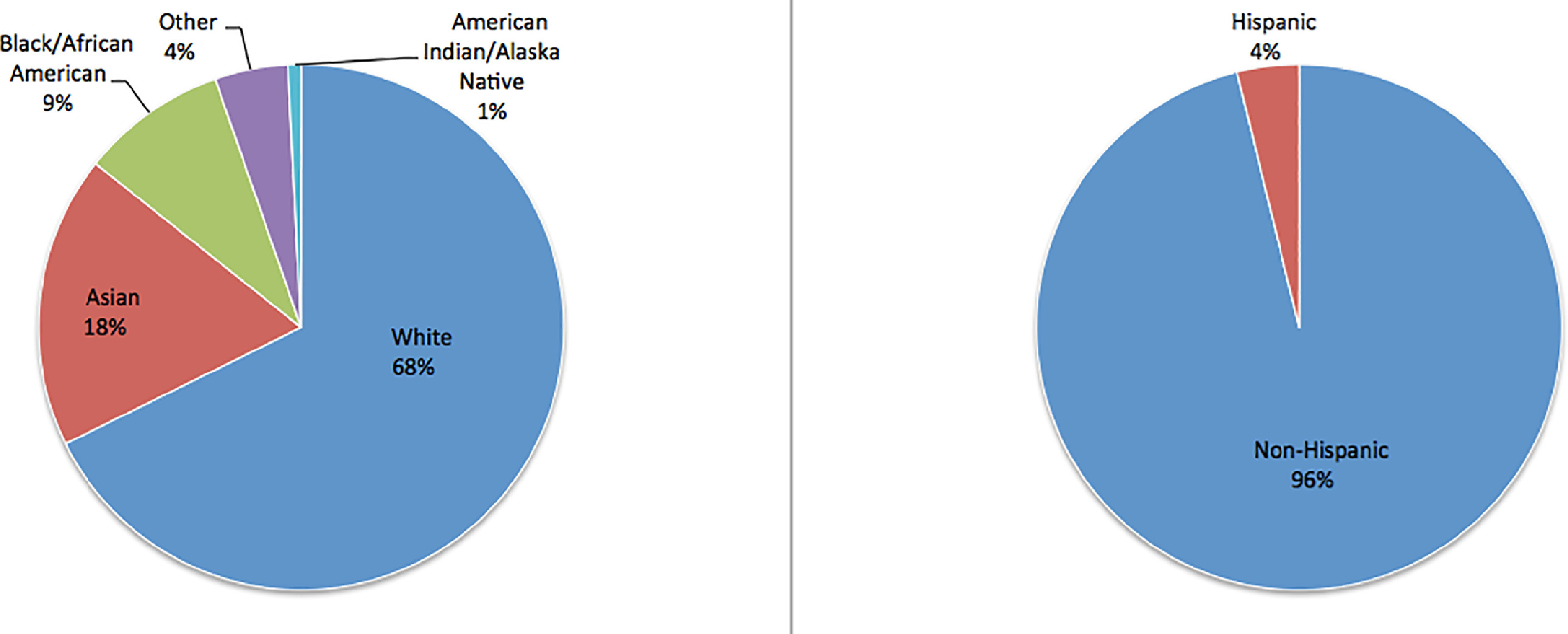Elsevier, American Journal of Preventive Medicine, Volume 60, January 2021
Introduction: Although vaccination coverage is high in Kenya relative to other African nations, undervaccinated children remain, making it important to identify characteristics of these children and their caregivers. Potentially relevant but understudied factors are women's empowerment and early marriage. Women who marry older and have more autonomous decision-making authority may be better able to ensure their children receive health services, including immunizations.
Elsevier, Journal of the American Medical Directors Association, Volume , 2021
Objective: Health disparities are pervasive in nursing homes (NHs), but disparities in NH end-of-life (EOL) care (ie, hospital transfers, place of death, hospice use, palliative care, advance care planning) have not been comprehensively synthesized. We aim to identify differences in NH EOL care for racial/ethnic minority residents. Design: A systematic review guided by the Preferred Reporting Items for Systematic Reviews and Meta-Analyses and registered in PROSPERO (CRD42020181792).
Elsevier, Urology, Volume , 2021
Objective: To define the current proportion of underrepresented minority (URM) academic urologists in leadership positions. Methods: A cross-sectional observational study of leadership positions in active United States Urology Residency Programs in 2020 was conducted. Academic urologists in leadership positions were electronically mailed a survey asking about personal and professional demographics. Self-reported variables including administrative position, race, and ethnicity were collected and analyzed.
Elsevier, European Journal of Radiology Open, Volume 8, January 2021
Purpose: Besides diagnostic imaging devices, in particular computed tomography (CT) and magnetic resonance imaging (MRI), numerous reading workstations contribute to the high energy consumption of radiological departments. It was investigated whether switching off workstations after core working hours can relevantly lower energy consumption considering both ecological and economical aspects.
Elsevier, Blood, Volume 137, 28 January 2021
Social determinants of health, including poverty, contribute significantly to health outcomes in the United States; however, their impact on pediatric hematopoietic cell transplantation (HCT) outcomes is poorly understood. We aimed to identify the association between neighborhood poverty and HCT outcomes for pediatric allogeneic HCT recipients in the Center for International Blood and Marrow Transplant Research database.
Elsevier, Agriculture, Ecosystems and Environment, Volume 305, 1 January 2021
Critical knowledge gaps about environmental fate and unintentional effects of currently used pesticides (CUPs) hamper the understanding and mitigation of their global impacts on ecological processes. We investigated the exposure of earthworms to 31 multiclass CUPs in an arable landscape in France. We highlighted the presence of at least one pesticide in all soils (n = 180) and 92 % of earthworms (n = 155) both in treated crops and nontreated habitats (hedgerows, grasslands, and cereals under organic farming).
Elsevier, One Earth, Volume 4, 22 January 2021
The upcoming Convention on Biological Diversity (CBD) meeting, and adoption of the new Global Biodiversity Framework, represent an opportunity to transform humanity's relationship with nature. Restoring nature while meeting human needs requires a bold vision, including mainstreaming biodiversity conservation in society. We present a framework that could support this: the Mitigation and Conservation Hierarchy.
Elsevier, Current Research in Green and Sustainable Chemistry, Volume 4, January 2021
Porous liquids form a new class of materials, which are liquid at room temperature and possess permanent porosity. The latter is a characteristic generally associated with solid-state only. Since the idea of porous liquid was exploited over a decade ago, the researchers see an opportunity of solving the solid material's limitation in gas capture and separation. In this discussion, we present the most recent developments on porous liquids and, in our perspectives, how they can tackle energy and environmental issues by their coupling with membrane technology.
Elsevier, The Lancet Planetary Health, Volume 5, January 2021
Background: The association of air pollution with multiple adverse health outcomes is becoming well established, but its negative economic impact is less well appreciated. It is important to elucidate this impact for the states of India. Methods: We estimated exposure to ambient particulate matter pollution, household air pollution, and ambient ozone pollution, and their attributable deaths and disability-adjusted life-years in every state of India as part of the Global Burden of Disease Study (GBD) 2019.



